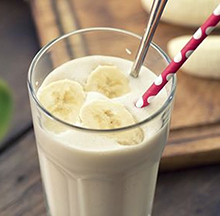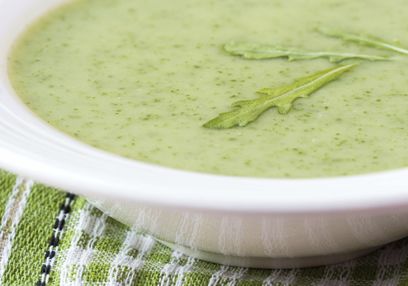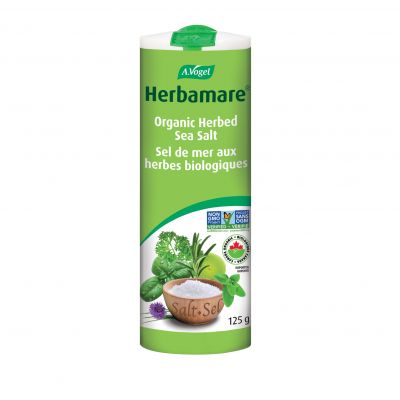Allergies arise when the immune system reacts to a foreign body, such as pollen, and responds as though the pollen is an invading bacteria or virus attacking your cells. During inflammatory reactions, the body releases histamine, a signal from the brain known as a neurotransmitter. This substance not only expands our blood vessels, but also makes them more permeable to white blood cells and proteins that fight the invader.
Blood vessels expand during exercise
In similar form, exercise causes the vessels in the active muscles to dilate in response to the increased metabolic demand. As you run, swim, balance, or lift weights, the reactions taking place inside the muscle cells create waste products such as carbon dioxide or lactic acid.
When these byproducts build up, they can interrupt important functions of other cells and create a toxic environment. Therefore, by dilating local blood vessels, the body can handle the increase in waste products and take them away to be processed. The similar reactions might make you wonder about whether histamines could play a role in exercise with current research indicating that it very well might.
Glucose levels
Glucose is a simple sugar that plays a large role in supplying cells of the body with the energy necessary for their function. After exercise, our glucose stores have fallen because the active muscle tissue gobbled up all of the available sugars. One might think the vessels would return to normal afterwards, but they remain dilated.
Researchers from the University of Oregon analyzed this phenomenon known as postexercise hyperemia – an excess of blood supply to an area. They discovered that when people were given a medication that blocked the receptors for histamine, the glucose levels in the active muscle fell, meaning histamine could encourage the delivery of glucose to the muscle. In another study, when the histamine receptors were blocked in mice, their overall endurance levels suffered.
Histamine and muscle growth
Histamine also plays a role in the daily patterns of sleep and wake. The role of this neurotransmitter is to maintain our waking state. This indirectly encourages our ability to exercise because the body can maintain arousal and delay mental and physical fatigue allowing for a longer, stronger workout.
A team of researchers out of the University of Oregon decided to delve into the genetics of the body’s response to the neurotransmitter and how antihistamines might impact your muscle growth. They demonstrated over 3000 genes that are active during post-exercise recovery in order to build muscle, remove wastes, and recover nutrients.
When the patients in the study were given strong doses of antihistamines, 795 of these genes got sleepy and demonstrated a lower level of response. When 26.5% of the genes responsible for recovery from exercise become less active, this could potentially cause lower levels of muscle growth.
Interestingly enough, exercise can also induce an allergic reaction in some people, so they may need to talk to their primary care provider to determine the best dose before exercise. However, the research is still inconclusive on whether a typical dose of antihistamines will impact your muscle growth.
Stick to the following tips to maximize your workout during allergy season:
- Sweet dreams. During sleep, much like an overnight janitor that leaves a building looking spotless the next day, the neurological clean-up crew is working overtime. White blood cells are trying to handle the allergens ingested during the day and other cells are dealing with cleaning up the byproducts of the muscle cells. Proper sleep is crucial to building those biceps because the body release higher levels of human growth hormone during our resting hours, which builds muscle. So say no to that little voice telling you, “Just one more episode” and get your slumber on.
- Symptomatic relief. Despite everything, sometimes going through an entire box of tissues is the only possible outcome. However, products such as Allergy Relief tabs can provide relief from the burning eyes and itchy nose that so many are familiar with. They are non-drowsy with no side effects and can be taken up to one month before allergy season to prepare the body for what is just around the corner.
- Whip up a powerhouse of natural antihistamines. Recipes such as the Hayfever Blasting Smoothie are a great way to protect against allergens with a delicious dose of Vitamin C. The smoothie also contains ginger which has been shown to reduce delayed-onset muscle soreness, so you can get back to the gym sooner than later.
- Consult an allergist. The old saying, ‘knowledge is power’, is no less important when it comes to allergies. Seeing a specialist to get tested is the first step to staying healthy when ragweed or tree pollens rear their ugly heads. Understanding what season or allergen puts you most at risk can help you develop strategies to avoid them or become proactive before a reaction takes place.
References:
https://www.ncbi.nlm.nih.gov/pmc/articles/PMC3016451/
https://www.ncbi.nlm.nih.gov/pubmed/1371041
https://www.ncbi.nlm.nih.gov/pubmed/16141376
https://www.ncbi.nlm.nih.gov/pubmed/16888049
https://www.ncbi.nlm.nih.gov/pubmed/20418184
https://www.ncbi.nlm.nih.gov/pubmed/20864502
https://www.ncbi.nlm.nih.gov/pubmed/20962917
https://www.ncbi.nlm.nih.gov/pubmed/21478258
https://www.ncbi.nlm.nih.gov/pubmed/22223343
https://www.ncbi.nlm.nih.gov/pubmed/22848080
https://www.sciencedaily.com/releases/2016/04/160414122009.htm






